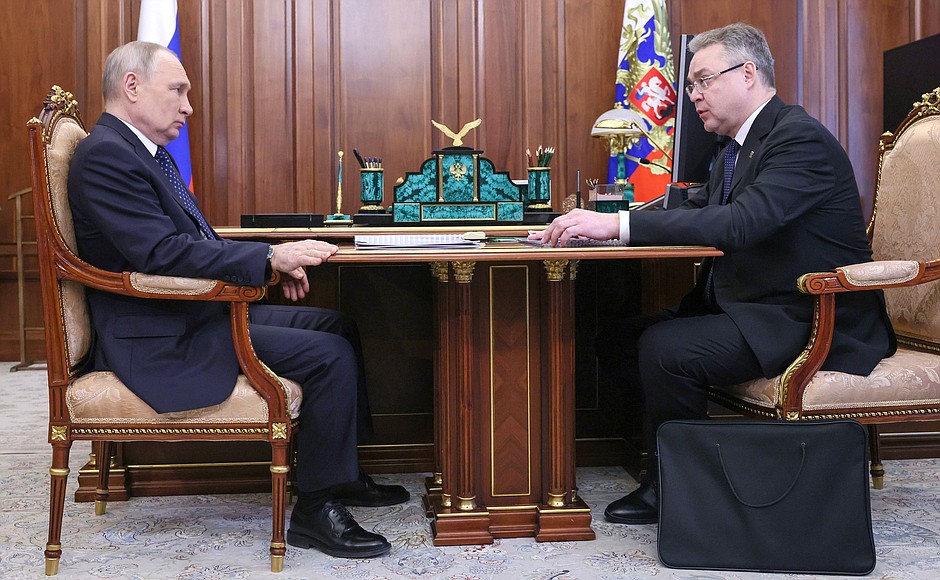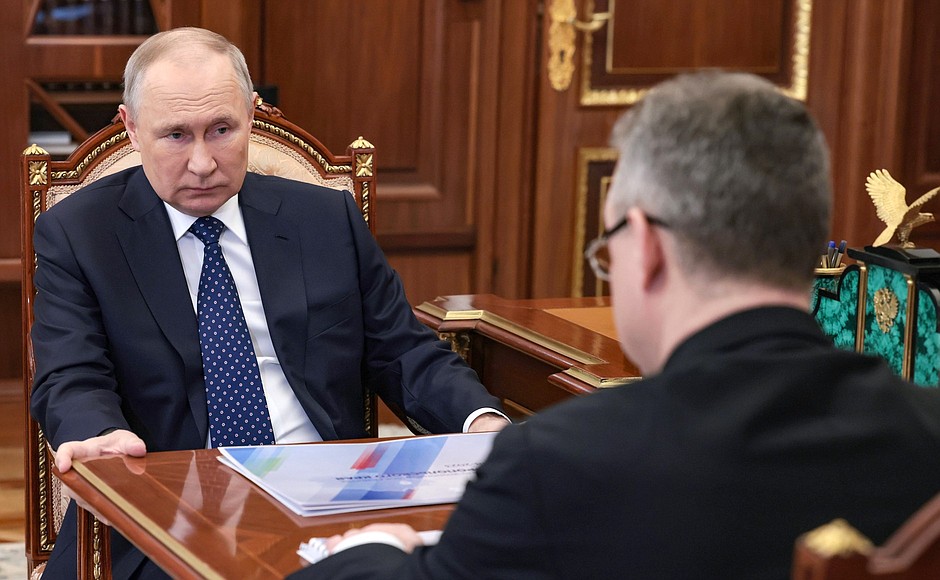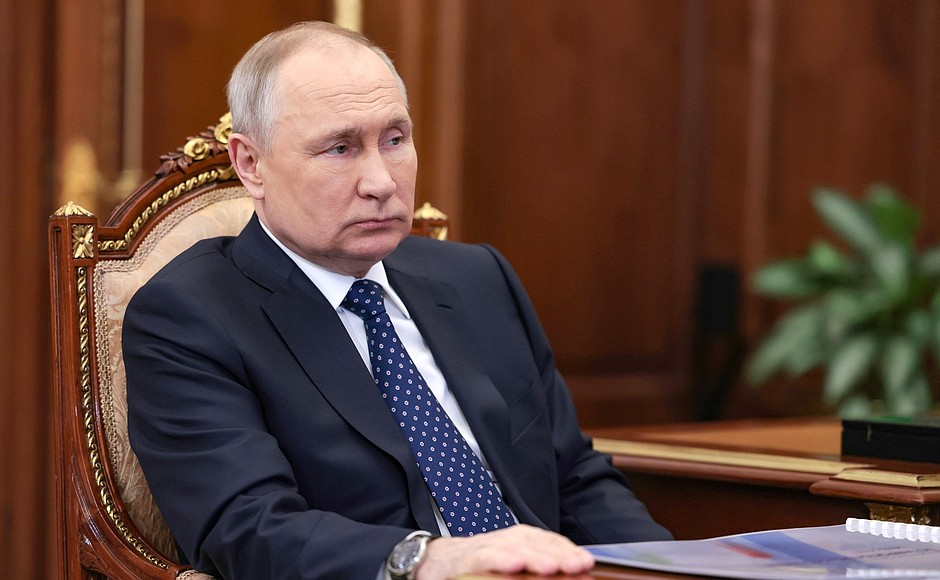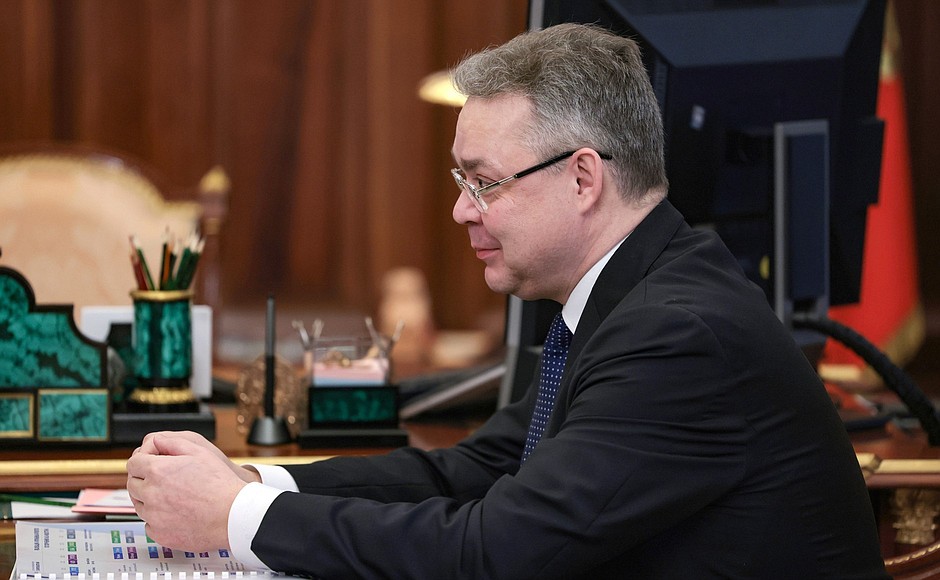In the beginning of the conversation, Vladimir Putin noted that the territory’s main indicators were stable, industrial production was growing, and the growth of agricultural indicators were several times higher than the average in Russia: 36 percent over the past two years.
Vladimir Vladimirov said that timely support had been provided by the Agriculture Ministry. On the topic of investment, the Governor reported that there were five breakthrough projects, including in agriculture, tourist and logistics clusters, and in wind power generation. Five breakthrough projects mean 707 billion rubles and 30,000 new jobs.
Vladimir Putin noted a decline in the permanent population, despite the favourable climate and good economic indicators. Vladimir Vladimirov noted that there was a problem with the birth rate, which fell during the pandemic period when there was a high Covid-19 incidence and mortality rate.
Vladimir Putin also noted that the number of emergency doctors in the region was less than the national average. The Governor said that this problem was being addressed and the Healthcare national project was helpful in this work.
Vladimir Putin also pointed to the backlog in the construction and renovation of schools: 63 percent were in an unsatisfactory condition. The President stressed that this was crucial to people’s lives: children’s education, medicine, and so on. Vladimir Vladimirov reported on what was being done in primary healthcare, updating the emergency treatment system, schools, and in the comprehensive development of rural areas.
The governor also spoke about supporting the families of participants in the special military operation, as well as about helping the Lugansk People’s Republic. Equipment for hospitals and schools was purchased, and teachers from the region underwent professional retraining in the Stavropol Territory. Vladimir Vladimirov noted that he had never seen such devastation anywhere, and this was not a result of military operations, but simply because nothing had changed there, no funds had been invested for the last 30 years. At the expense of the Stavropol Territory, a new school and a road were built in the republic. The work continues, with funds set aside in the budget.
Returning to the topic of breakthrough projects, the governor spoke in detail about land reclamation projects, the cultivation of vegetables and cotton, and the development of four health resort areas in Pyatigorsk, Kislovodsk, Zheleznovodsk and Yessentuki, where plots of land have been allocated for building health resorts and where 41,000 jobs will be created. There are already investors in Kislovodsk. Another driver of the regional economy is the chemical industry. Lukoil plans to build a factory to produce 1.5 million tonnes of carbamides and complex fertilisers in Budyonnovsk, and EuroChem plans to expand ammonia production to 12 million cubic metres. On the whole, the two of them are already investing about 400 billion rubles. Vast investments are associated with wind generation: about 200 billion rubles are invested every year.
The governor said the project in Nevinnomyssk was excellent as well. A territory of advanced socioeconomic development was created there in 2018. Steel production was launched, involving steelmakers from the Donetsk People’s Republic. It is planned to expand production to 1.5 million tonnes. There are two major factories producing dry mixes, as well as a facility manufacturing radiators. But most importantly, Nevinnomyssk has become a logistics centre for Ozon, Wildberries, and X5 Retail Group. A project for the storage and packaging of Stavropol fruits is currently being implemented.
Vladimir Vladimirov also spoke about the operation of the year-round scientific and educational Mashuk Knowledge Centre, which opened in August 2022. Today, more than 11,000 people have already undergone advanced professional training there. Teachers from Donbass were the first to arrive on August 8, 2022.




